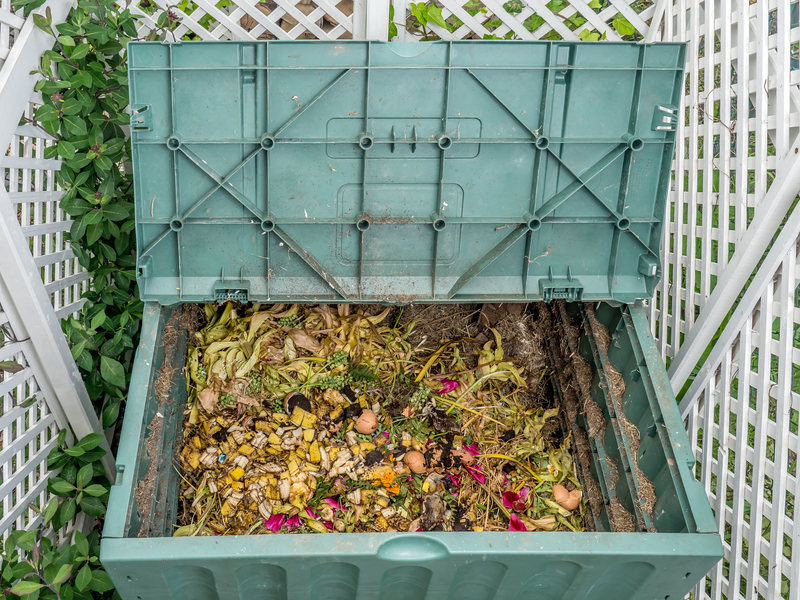Optimize Skip Hire: Crucial Dos and Don'ts
Waste management is a critical aspect of any construction, renovation, or large-scale clean-up project. One cost-effective solution that stands out is skip hire. However, not everyone optimizes skip hire for efficiency and savings. In this comprehensive guide, we'll explore everything you need to know about making the most of your skip bin rental, covering vital dos and don'ts to ensure a seamless and environmentally responsible experience.
Understanding Skip Hire: What Is It and Why Optimize?
Skip hire involves renting a large container, known as a skip, to collect and dispose of waste efficiently. Businesses, contractors, and homeowners regularly use skips for:
- Construction and demolition projects
- Garden and household clearances
- Office refurbishments
- Event waste management
Optimizing skip hire means not only saving money, but also minimizing environmental impact and ensuring compliance with local regulations. Whether you're a business owner or a first-time DIY enthusiast, following best practices will maximize your benefits and minimize common pitfalls.

The Crucial Dos of Effective Skip Rental
Getting the most value out of your skip rental involves a range of proactive steps. Here are the essential actions to take when hiring a skip:
1. Assess Your Waste Requirements Carefully
Before you hire a skip, evaluate the type and volume of waste you'll generate. Different projects--such as garden clearance, house renovation, or commercial jobs--produce varying amounts and types of waste. Make an assessment based on duration, room count, and the mix of materials.
- Overestimating the size leads to wasted money.
- Underestimating means you might need an extra skip, costing more in the long run.
2. Choose the Right Skip Size
Skips come in multiple sizes, usually measured in cubic yards or metres. The most common options are:
- Mini skips (2-3 yards): Perfect for small domestic clear-outs.
- Midi skips (4-5 yards): Suitable for larger household projects or garden waste.
- Builders' skips (6-8 yards): Ideal for bulky waste, like soil or rubble.
- Large skips (12-16 yards): Necessary for commercial or renovation jobs.
Tip: If in doubt, err on the side of slightly larger; it's more cost-effective than ordering two smaller skips later.
3. Plan Loading for Maximum Space Efficiency
Maximize value by loading your skip strategically. Break larger items down, flatten boxes, and stack flat materials on the bottom with heavier items on top. This avoids air pockets and wasted space. Place lighter items at the top for maximum capacity utilization.
4. Know What You Can and Cannot Put in a Skip
Not every item is suitable for skip hire. Familiarize yourself with acceptable and prohibited waste:
- Accepted: Wood, plastic, metal, bricks, soil, garden waste, furniture, tiles
- Prohibited: Asbestos, paint, solvents, chemicals, tyres, electrical appliances, batteries, fridge/freezers
Contact your skip hire provider if unsure about specific items. Illegal items can result in fines and environmental damage.
5. Acquire Necessary Permits
If your skip will be placed on a public road or land, you may need a permit from your local council. Skips on private property typically don't require a permit.
- Plan ahead - paper permits can take several days to process.
- Failure to secure permits can result in legal penalties and removal of your skip.
6. Prioritize Safety and Accessibility
Choose a flat, accessible location for your skip. Ensure it won't block driveways, fire exits, or pedestrian paths.
- Use safety lights or covers at night, especially for street-placed skips.
- Keep children and pets away from the skip.
7. Separate Recyclable Materials
Many skips are bulk sorted at transfer stations, but presorting recyclables like cardboard, wood, or metals can save on disposal costs and is better for the environment.
8. Check the Reputation of Your Skip Hire Provider
Choose a licensed and insured company with positive reviews. Check they provide clear guidance about prohibited materials, permits, and collection schedules. Transparent pricing is essential--avoid providers with hidden fees.
9. Minimize the Hire Duration
Plan your project so the skip can be filled quickly. The longer you keep a skip, the more you may pay, especially if you go beyond the agreed period.
- Some companies offer flexible skip rental periods. Choose what suits your timeline.
10. Communicate Clearly With Your Provider
Give accurate information about potential obstacles, restricted access, and waste type. Good communication avoids misunderstandings, delays, or additional charges.
Common Pitfalls: The Don'ts of Skip Hire Optimization
The benefits of skip bin rental are easily undermined by a few critical mistakes. Here's what to avoid when you want to optimize your skip hire:
1. Don't Overfill Your Skip
Overfilling is a leading cause for additional charges and collection delays. Skips have clear fill lines--never let waste rise above the skip walls. Transporting an overloaded skip is illegal, dangerous, and may incur extra fees or refusal of collection.
2. Don't Dispose of Hazardous Materials Illegally
Certain waste types, such as asbestos, chemicals, and batteries, pose a risk to sanitation workers and the environment. Placing these in your skip could result in hefty fines or prosecution. Always ask your skip provider for guidance on hazardous waste disposal.
3. Don't Forget to Consider Access for Delivery and Pickup
Skip lorries need enough space to deliver and retrieve skips. Obstacles like parked cars, trees, or overhead wires can prevent successful delivery or collection, leading to extra charges or project delays.
4. Don't Place Your Skip Illegally
Never place skips on public highways, footpaths, or shared areas without proper authorization from local authorities. Illegal placement can result in fines or forced removal at your cost.
5. Don't Burn Waste in the Skip
Burning items inside a skip is not just dangerous but also illegal. It can warp or damage the skip, leading to replacement fees, and releases toxic fumes, harming health and the environment.
6. Don't Assume One Size Fits All
Selecting the wrong skip size can prove costly. Too small, and you might need supplementary skips; too large, and you'll pay for unnecessary capacity. Always discuss your needs with the provider before finalizing.
7. Don't Ignore Local Regulations
Every council may set different rules regarding skip placement, permit requirements, and waste types. Skipping this step can derail your project or expose you to legal liabilities.
Environmental Responsibility in Skip Hire
As environmental concerns mount, responsible waste disposal grows ever more crucial. When you optimize skip hire with sustainability in mind, you not only help the planet but may reduce costs and enhance your reputation (if you're a business).
- Select a provider: Look for skip companies committed to recycling and proper disposal. Many firms now recycle significant proportions of skip contents.
- Segregate on-site: Place bins or sacks for recyclables to streamline sorting at waste transfer facilities.
- Avoid contaminating loads: Do not mix food waste or wet materials with recyclable debris, as contamination may prevent effective recycling.
- Leave clear access and fill safely: Don't throw glass or sharp items onto a pile, as breakages can complicate recycling efforts.
Green Alternatives and Minimizing Waste
Before hiring a skip, consider waste reduction strategies. Donate usable furniture, recycle electronics, or compost garden waste. Opt for eco-friendly skip hire services that sort, recycle, and responsibly dispose of all contents. By minimizing the waste sent to landfill, you support a circular economy.
Step-by-Step Checklist to Optimize Your Skip Bin Hire
- Outline your project: Estimate waste types and quantities.
- Research local skip providers: Compare sizes, services, and prices.
- Check company credentials: Ensure licensing and recycling commitments.
- Secure permits: Apply well ahead if needed for public placement.
- Select the right size and type: Consult your provider for tailored advice.
- Prepare your site: Choose a safe, accessible location with minimal obstruction.
- Plan your loading: Flatten, stack, and sort for maximum efficiency.
- Keep to timeframes: Arrange timely delivery and collection to avoid extra charges.
- Follow up on recycling: Ask your provider about how your waste is processed.

Frequently Asked Questions About Skip Hire Optimization
How do I know which skip size I need?
Discuss your project details with your skip provider--they can estimate based on project type (room clearance, garden, renovation) and waste volume. Most companies provide handy online guidelines or calculators.
Can I mix waste types in my skip?
Commonly, yes; however, hazardous or specialist materials (asbestos, plasterboard) must be separated. Always clarify with your skip hire company.
What happens if I overfill the skip?
The skip may not be collected, or additional charges could apply. Always fill to the marked line, never above.
Do I need permission to put a skip on a public road?
Yes. You'll require a skip permit from your local council. Your skip company can often arrange this, but you must factor in the processing time.
How can I ensure my waste is recycled?
Choose a skip hire company that openly shares its recycling rates and sustainability policy. Ask for details before you book.
Conclusion: The Smart Way to Optimize Your Skip Hire
Efficient skip bin rental is about much more than simply hiring the nearest provider and tossing in debris. By following the crucial dos and don'ts from this guide, you minimize costs, maximize convenience, and act responsibly toward the environment.
- Plan ahead; assess your needs, select the correct size, and schedule delivery and pickup.
- Follow regulations; secure permits, avoid prohibited waste, and comply with local guidelines.
- Prioritize sustainability; choose eco-conscious companies and segregate recyclables wherever possible.
Optimizing skip hire ensures your project stays on schedule, within budget, and supports a cleaner, greener community. For more detailed advice and quotes tailored to your needs, always consult with an experienced, reputable local skip hire provider.
By mastering these crucial steps, you can transform your next clean-up or construction project into an organized, cost-effective, and environmentally friendly success.